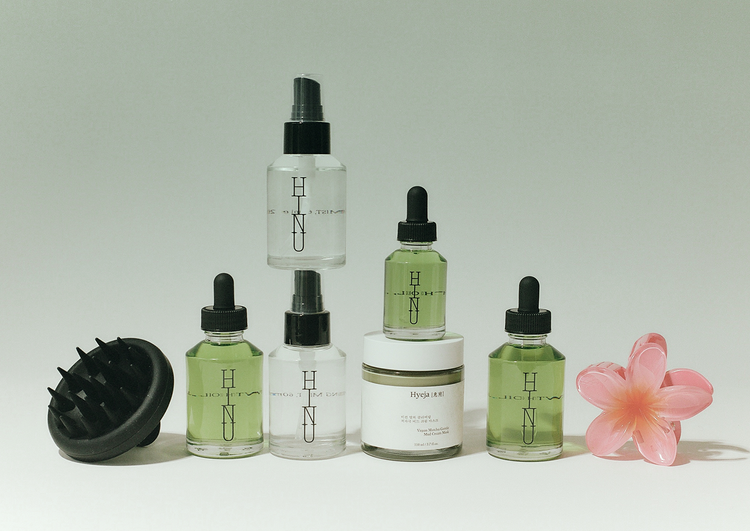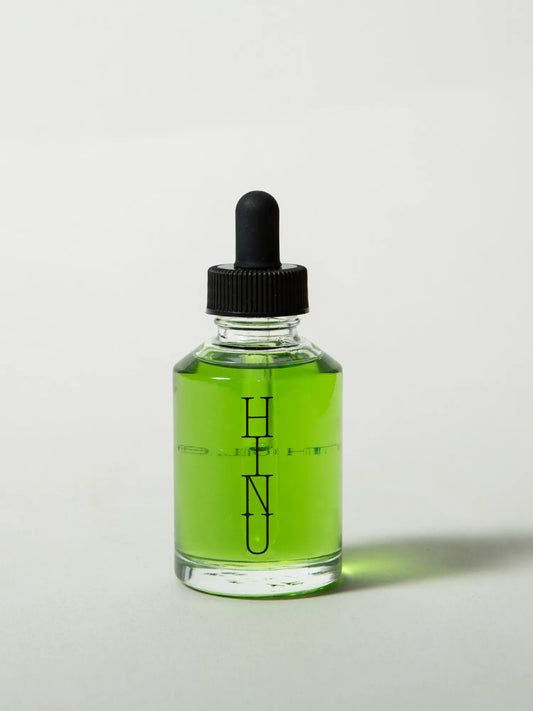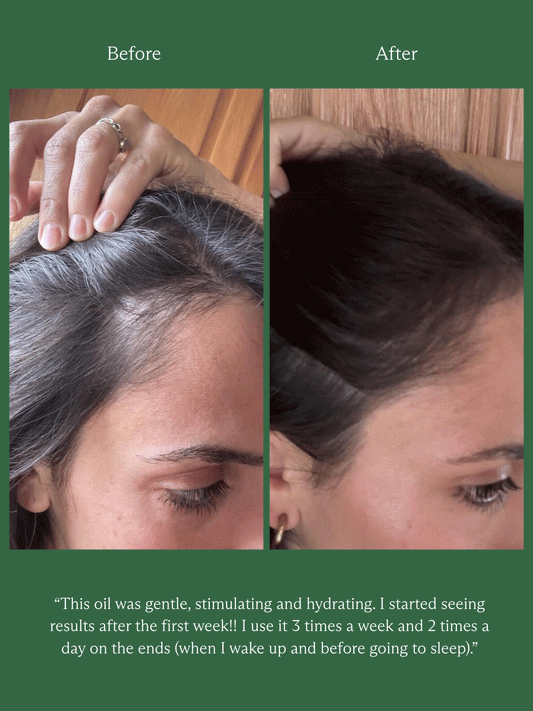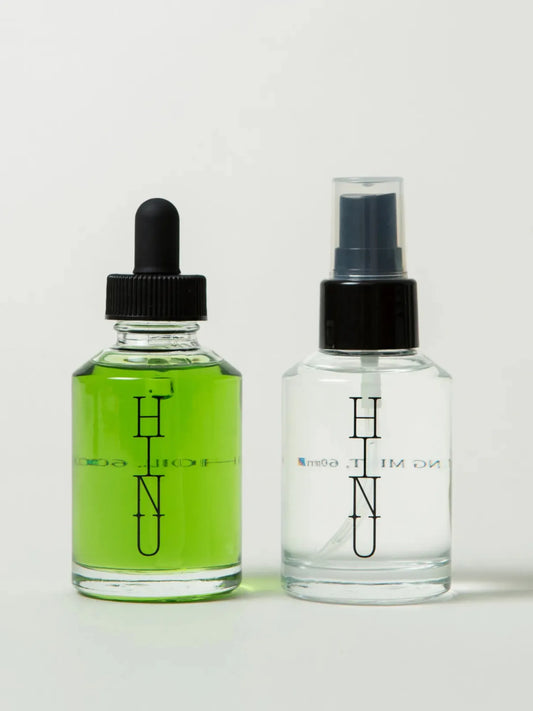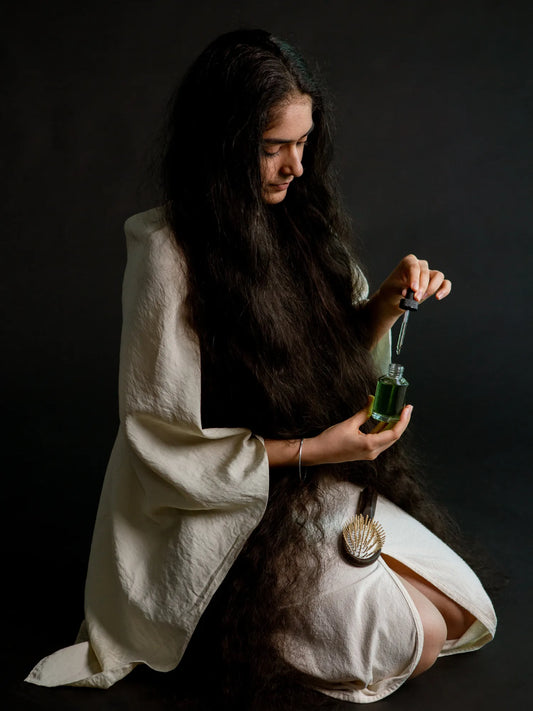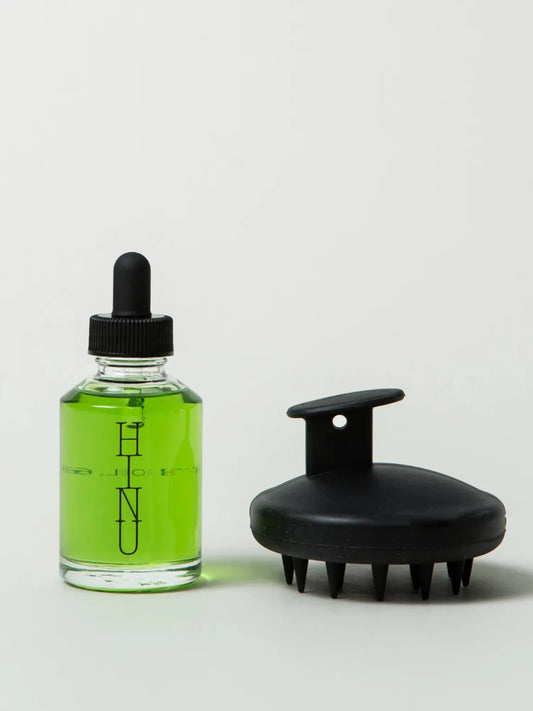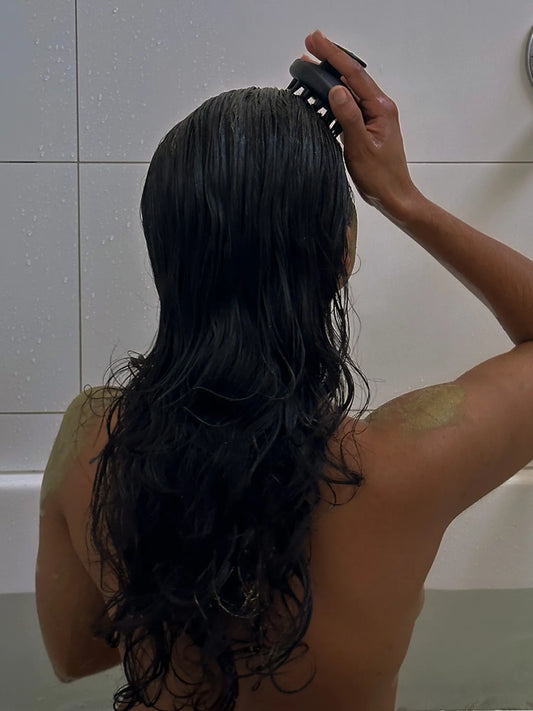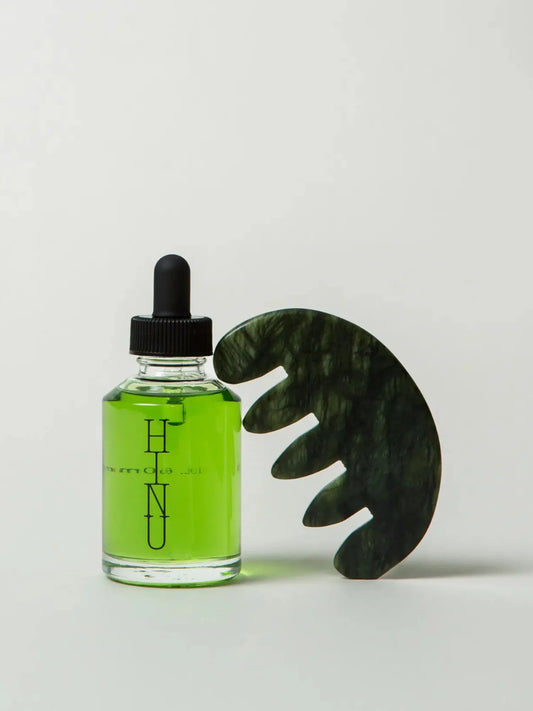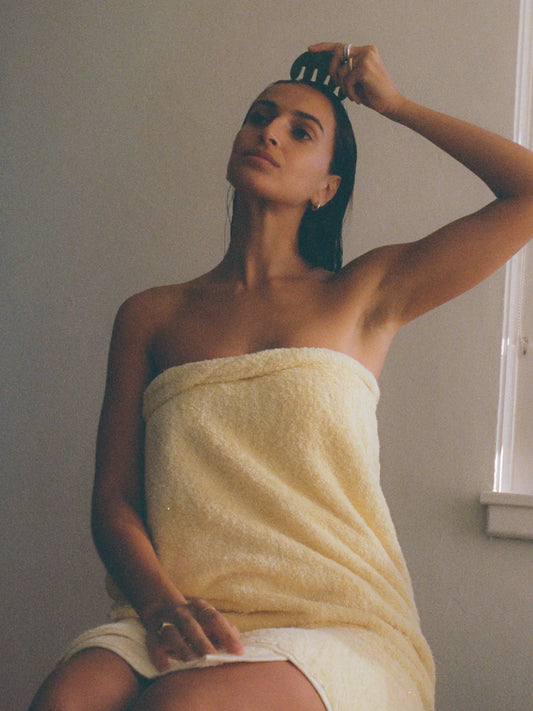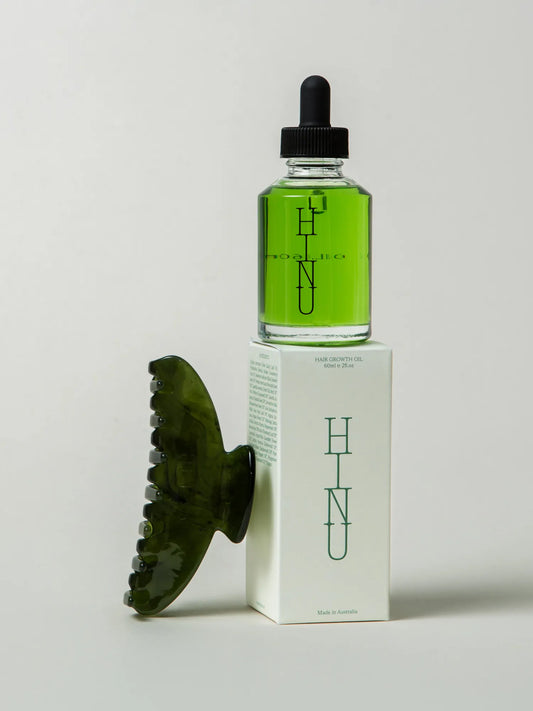
With a love for human anthropology, sciences and philosophy, she bridges ethereal ideas and the route of bringing them to their tangible forms. Using styles derived from Dadaist movements and everyday experiences, she finds excitement in communicating with herself through the process, and in observing people speak to parts of their own through her performance.
Currently residing in Naarm (Melbourne), Australia, we chatted to her about her journey with hair, oiling and the relationship that exists between the self and the external body.

Tell me a little about your relationship with your hair… What is your earliest memory of having attachment to it?
It began with the freshness I felt every time I wanted a theme in my life to change. From heartbreaks to hard work, I’ve felt a sense of determination to move whenever I chopped my hair. It was the quickest way to embody change, a shift in the way my hair felt and appeared. Having a fresh haircut or colouring it was so popular in the 2000s, so the trend was always present. And getting curious about it was only natural to me.
I was quite ashamed of the texture of my hair because of how straight I wanted it to be. After chemically straightening it for years, I finally decided to give it a shot and let it grow because my friends encouraged me to. I’d never seen it grown in its fullness. And seeing it now makes me feel so happy to have it. It’s like an antennae passed genetically through generations. Knowing how much information our hair carries from our surroundings, to things we eat to ancestral roots in our DNA in each cell makes me call it my antennae. It’s made me fall in love with it harder.
Apart from the hair on your head and the hair on your body having a primal purpose, what does hair mean to you? Does it signify anything particular?
I don’t find surplus amounts of excitement in my body hair or feel the need to over-glorify it. It’s just a feature that I’ve been able to normalise over time. I think it mostly signifies freedom. Just like I see a pair of eyes denoting a different symbol that changes depending on my mood and the day, I see hair just the same. Because it’s just there, and it doesn’t need anyone’s permission to exist.
Tell me a little about your experience with hair oiling? When did you first discover it and what encouraged you to begin this ritual?
Oiling has been a ritual in my family for centuries. Ever since I could remember, daily oiling was as much of a need as it was to have a shower. In my family in particular, we would have weekly hair oiling where we’d oil our hair and watch movies or even sit amongst each other in the living room and lounge in the summer. No questions asked, we just showed up and got our hair oiled.
Over time it dwindled and weekly oil rituals got quite fragmented as I continued but the love for Ayurveda still stayed. I’m still so obsessed with oils, teas and herbs. Moving to a new country that doesn’t have me seeing a lot of my culture around + having my hair grow in its natural state encourages me to be so in tune with tending to it. Before and after every hair shower, I wear all sorts of oils on my hair.
Since that time, have you noticed a change in your hair? If so, what has been the biggest shift?
Committing to a ritual in such an unconscious way helps me enjoy it so much more when I become aware of its benefits. I’ve seen my hair grow less frizzy, longer and less fussy with the weather. It’s like this mutual, symbiotic sync. Maintenance can feel exhausting because we’re taught to do things quickly to seeming efficient. But maintenance can be slow and repetitive; and I’ve found myself to enjoy it. Doing it as a ritual motivates me, bringing me to slow down and focus on this repetition. It smells good and giving massages makes me feel euphoric. Maintenance has taught me the balance between effort and ease. In everything. And it still gets me every time.
Let's talk a little about Hinu Hair Growth Oil and your favourite way to use it… Some people like the 1 hour soak, others an overnight. Which do you prefer?
I do both of them. The hourly soak has a lot more oil in it but the overnight one has a few drops. The ritual I use overnight is the same I use every morning and post shower too. The oil doesn’t stay on the surface, it soaks it like a cloth would and so I’m not left greasy.
And what's your method? Do you start at the roots or do you give the ends lots of oily love?
It depends, I love using it on my ends because it has the least amount of oils going to it naturally. Since the scalp produces its own oil, I find a few drops working well. Post-shower dryness has my scalp needing a few more drops than usual so that’s when I like using it the most. The ends though, every time I get a chance.
I have two bottles, one on my nightstand and one in the lounge room; I massage my scalp when I’m watching something on TV, on a phone call and even when I talk to my friends whilst lounging because I’m so used to it. Massages are so potent for circulation and I feel fresher post ritual.
Lastly, what advice would you give someone who is new to oiling and/or has just started on this journey?
Begin with massages and backward brushing. Scalp health is the primary function of hair health so know what your scalp is like, what it reacts well to, what it doesn’t. Starting the practice is going to lead to some tangible self-discovery. You might also stumble across ideas and philosophies when you indulge in the ritual of oiling with no distractions. Again, maintenance builds a bridge between effort and ease so + the enjoyment and commitment to the practice is worth three good shots. At least. I wish you good scalp and magnificent smelling hair.
